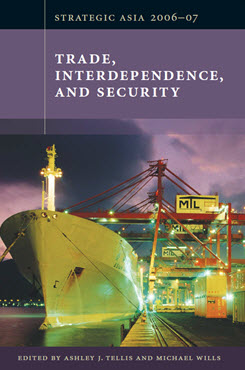Trade, Energy, and Security in the Central Asian Arena
This chapter examines whether the economic structures, socio-political conditions, resources, and trade patterns of Central Asia are likely to generate significant regional or international conflict in the coming decade.
EXECUTIVE SUMMARY
This chapter examines whether the economic structures, socio-political conditions, resources, and trade patterns of Central Asia are likely to generate significant regional or international conflict in the coming decade.
MAIN ARGUMENT
- The energy, mineral, and human resources of the five post-Soviet Central Asian states have spurred economic and political strategies that protect these states from outside intervention and that tend to keep the region from major upsets.
- Being too weak to assure their own security, Kyrgyzstan, Tajikistan, and Turkmenistan must pursue conciliatory foreign policies. By contrast, the presence of exportable staples of oil, natural gas, coal, gold, or cotton has allowed Uzbekistan and Kazakhstan to adopt more assertive policies vis-à-vis their regional neighbors.
- Russia’s predominant influence in the region is unlikely to be challenged forcefully by any outside power.
- While instability within each of these authoritarian regimes could result in violence, outside powers besides Russia are unlikely to step in to restore order.
POLICY IMPLICATIONS
- The U.S. need not fear that any other power may “lock up” Central Asian energy resources. Increased supplies to China or Russia will help to moderate world prices somewhat.
- To limit the flow of narcotics, arms, human trafficking, and would-be terrorists across Central Asia, cooperation with China and Russia is a promising possibility for the U.S., one that will require openness about the limited intentions of the U.S. and both imagination and coordination with the Central Asian governments themselves.
- While possibilities for the U.S. to obtain mutually beneficial security agreements with individual states in the region do exist, none of these states is likely to become a long-term, reliable ally of NATO, of the U.S., or of any other great power.
Strategic Asia
The Strategic Asia annual edited volume incorporates assessments of economic, political, and military trends and focuses on the strategies that drive policy in the region. Learn more about Strategic Asia.


